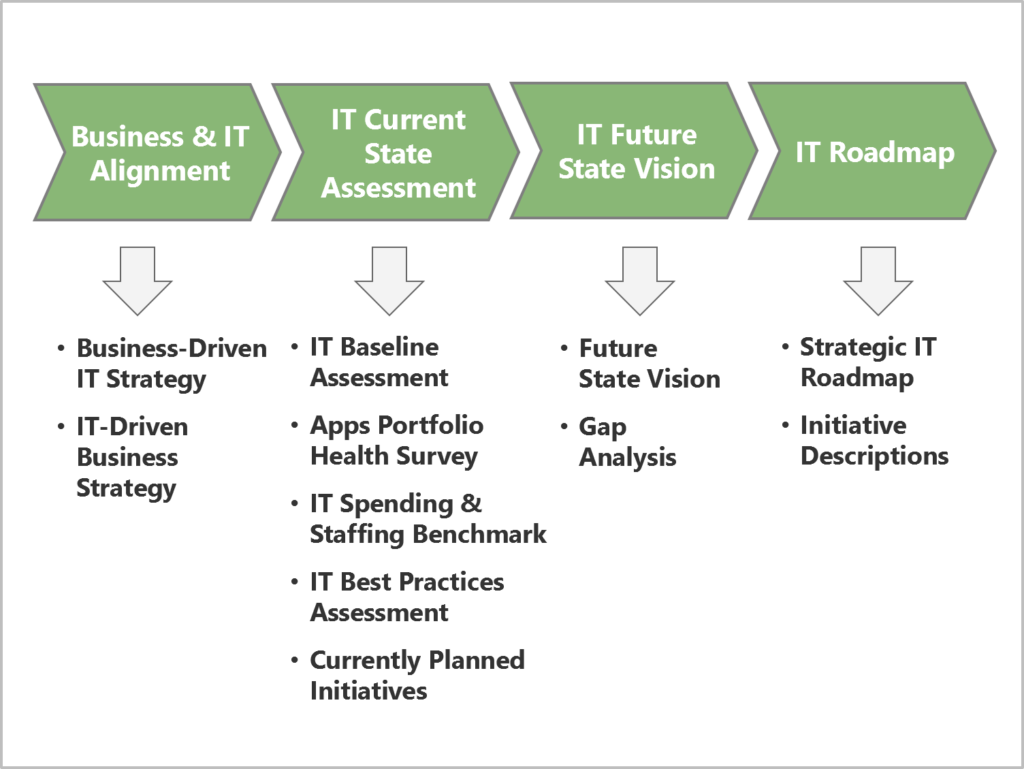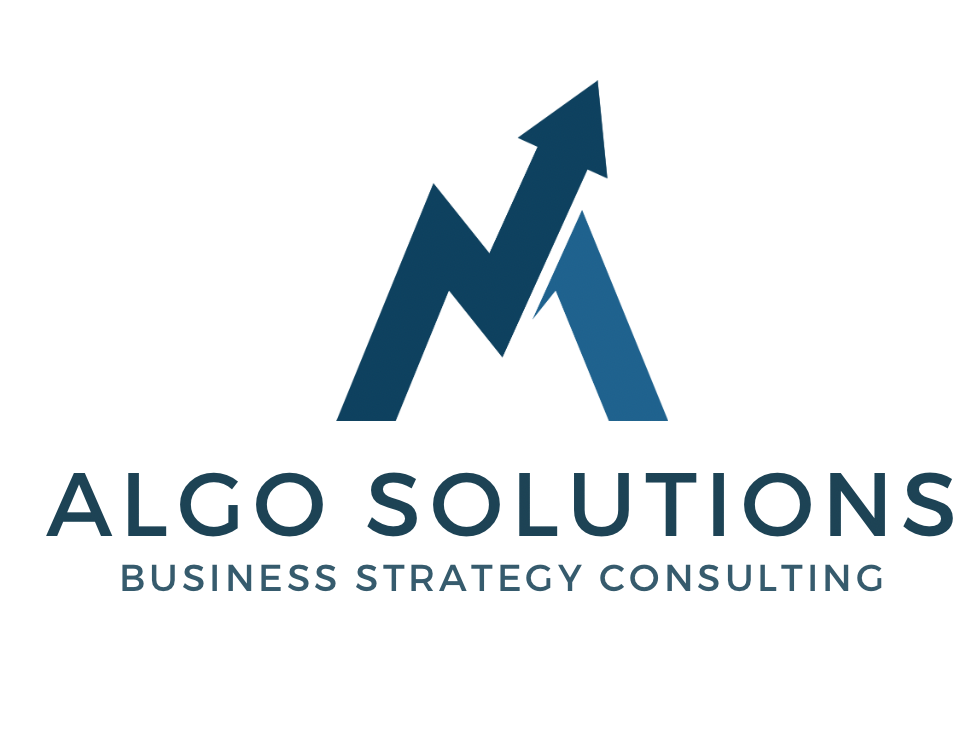IT STRATEGY CONSULTING
In today’s business world, information technology is a key function. IT is no longer only a backend function for automating repetitive operations and streamlining business processes; it is now an integral part of many sectors’ products and services. Even firms that may not consider themselves to be “high-tech” are increasingly leveraging information technology for digital transformation and as a critical component of their developing business models.
Yet, in many organizations, business leaders view information technology solely as a technical function. IT systems, IT organizations, and IT processes may be well-designed technically yet poorly matched with business objectives. This can be the result of a shift in company direction, rapid or sustained growth, acquisitions, or competitive disruption, all of which cause dissonance between business requirements and IT capabilities.

Roadmap for IT Strategy
With expertise in both business and technology, our IT strategy consultants can assist your organization in developing an integrated IT strategy. Our approach to information technology strategy is focused and entails the following activities:
Alignment of the business and information technology. We begin by examining the organization’s purpose, vision, objectives, and strategy in order to determine the implications for IT–what IT has to be and do in order to support the business plan and generate business value. On the other hand, what capabilities can IT implement to lay the groundwork for new business models?
IT Current State Analysis. We undertake an assessment of the organization’s current information technology environment, including its data centers, networks, equipment, documentation, and use of cloud computing. Additionally, we examine the health of the organization’s current IT application portfolio using a combination of online user surveys and in-person interviews, grading each significant business system according to its organizational importance, actual managerial value, and technical excellence. This provides us with an early indication of which systems should be nurtured, replaced, or upgraded. We also assess IT spending and personnel levels, the utilization of outsourcing and outside IT service providers, and the condition of IT management best practices using metrics given by our sister IT research organization, Computer Economics. Additionally, we examine what new information technology efforts are being planned for the future.
IT Vision for the Future State. This is the visioning stage of IT strategy, in which the organization envisions a future state in which information technology systems, technology, people, and processes are completely aligned with the business plan. Additionally, this stage may include “art of the possible” workshops during which our IT strategy consultants determine which new and innovative technologies are most relevant to your business and should be considered for implementation. We then compare this picture to the existing state and conduct a gap analysis.
Roadmap for IT Strategy. This is the formulation stage, during which we define the IT roadmap’s various projects and weave them together into a strategic narrative: a story about where you’re going and how you’re going to get there. The ultimate result is an enterprise-wide strategic IT road map that describes the desired future state, main activities, and implementation priorities. Additionally, it offers basic descriptions and budget projections for each of the IT roadmap’s major activities. Strategic initiatives may include the development of new business application systems and information technology capabilities, as well as upgrades, infrastructure improvements, organizational changes or restructuring in information technology, process improvements, information technology governance structures, and risk management programs.
The Purpose of an IT Strategy
A comprehensive IT plan encompasses the following areas, which our specialists may customise to your specific needs:
- IT Applications Portfolio: a collection of business applications that will be used to support business activities. These frequently include ERP, CRM, human capital management/human capital management, business intelligence/analytics, and a number of industry-specific solutions.
- IT Infrastructure: The technical architecture of hardware, operating systems, databases, end-user computer platforms, communications, and facilities in information technology. This also includes the replacement of on-premises IT infrastructure and systems with newer cloud platforms.
- IT Service Management: The process of determining how, where, and by whom IT services should be delivered, whether internally or through outsourcing or managed services providers.
- IT Organizational Design: Information technology is not just about technology; it is also about people. Additionally, our IT strategic planning services include an assessment of present skills and staffing levels, the identification of skills shortages, and the construction of an ideal IT organizational structure to execute the road map. Additionally, if necessary, we may assist with the hiring process for new IT staff.
- IT Management Best Practices: Information technology has its own internal processes that should adhere to established best practices. These include best practices for information technology governance, information technology financial management, information technology operations, information technology security and risk management, application development, and innovation.
Our IT strategy consulting experience spans industries ranging from manufacturing, distribution, and retail to professional/technical services and software development. Additionally, we have expertise and experience in commercial real estate (CRE), medical devices and other FDA-regulated businesses, as well as government contractors and non-profit organizations.
